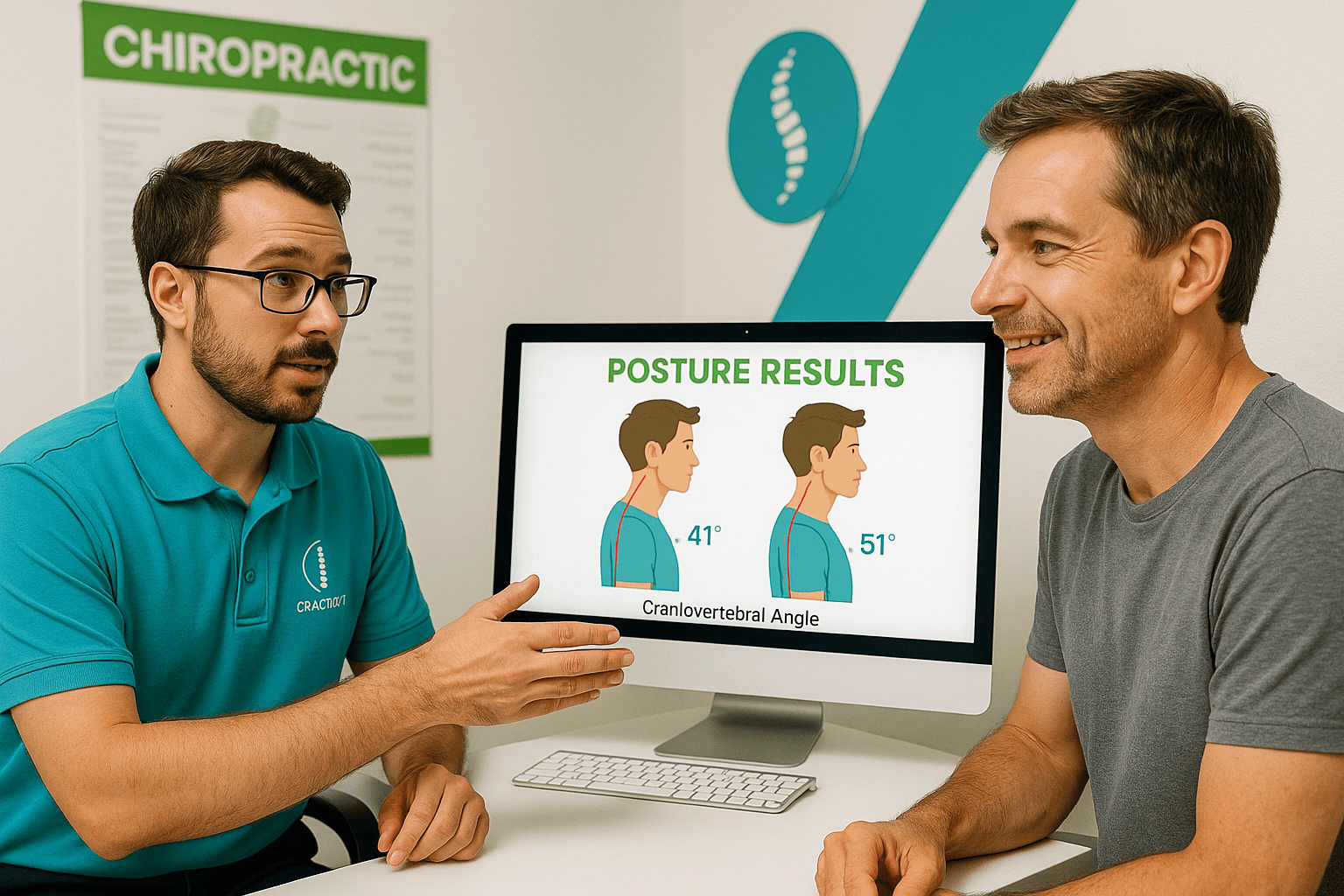Sleep is meant to be restorative — a time when your body heals, your spine decompresses, and your nervous system resets. But if your sleep posture or routine is out of alignment, it can do more harm than good. Poor sleep habits silently degrade your posture over time, leading to back pain, spinal misalignments, and fatigue that carries over into your waking hours. Let’s break down how sleep and posture are connected — and what you can do to fix it.
Jump to:
TLDR – Quick Guide
- Sleeping on your stomach – strains neck and spine
- Unsupportive pillows or mattresses – throw off spinal alignment
- Falling asleep on the couch – reinforces poor spinal curves
- Using too many pillows – can lead to forward head posture
- Inconsistent sleep positions – prevent the spine from adjusting and healing
The Link Between Sleep and Posture Health
Sleep = Spinal Reset Time
Each night, your spine decompresses from the day’s gravitational stress. The discs between your vertebrae rehydrate and your muscles relax. But if you sleep in poor alignment or on an unsupportive surface, your spine is forced into unhealthy curves for hours at a time.
Posture Doesn’t Pause Overnight
Your spine spends 6–9 hours a night in the same position. That’s one-third of your day reinforcing either healthy or harmful patterns. And unlike poor posture while standing or sitting, you’re less aware of it — which makes long-term damage more likely.
5 Poor Sleep Habits That Hurt Your Posture
1. Sleeping on Your Stomach
Stomach sleeping may feel comfortable short-term, but it flattens your natural lumbar curve and forces your neck into awkward rotation. This leads to chronic stiffness, headaches, and lower back tension.
Fix: Sleeping on your side is best but, even sleeping on your back is much better for you than front sleeping.
2. Using the Wrong Pillow
Pillows that are too thin or too thick can misalign your entire spine. Most people are sensitive to pillow height to within a few millimetres!
Fix: Choose a pillow that allows you to adjust it’s height to a fine degree. The specially designed ABC pillow is perfect for this and helps promote a neutral spine position while you sleep on your side.

3. Sleeping on a Worn-Out Mattress
An old or sagging mattress fails to support the natural curves of your spine. You may find yourself sinking or twisting in your sleep, creating asymmetrical pressure on your hips and lower back.
Fix: Replace your mattress every 7–10 years. A medium-firm mattress is ideal for most people.
4. Falling Asleep in Chairs or Couches
Dozing off on the couch or in a recliner leaves your spine unsupported and your head tilted forward or to the side. Even short naps in these positions can contribute to postural distortion.
Fix: Make it a habit to move to your bed for proper support, even if you’re just resting for a short time.
5. Memory foam pillows and mattresses
Memory foam is a terrible material for your body. Despite the marketing claims, no memory foam product will suppprt your head or body properly. Over time they can ruin your body’s alignment.
Fix: We recommend replacing memort foam with firm, sprung or latex construction.pillows and mattresses just like you will find in the ABC pillow and ABC mattress.
Consequences of Ignoring Sleep Posture
- Forward Head Posture
- Rounded Shoulders
- Lower Back Pain
- Neck Stiffness
- Poor Circulation and Breathing at Night
- Chronic Fatigue from Poor Sleep Quality
Over time, these symptoms can become chronic and contribute to long-term structural misalignment, requiring corrective care.
Posture-Friendly Sleep Tips
- Use a supportive pillow that is the correct height to maintain neck alignment Sleep on your side
- Front and back sleepers: try and sleep in your side
- Sleep on your side with a pillow between your knees
- Back sleepers: place a pillow under your knees to reduce lumbar strain
- Stick to a consistent sleep position that supports your spine
- See a chiropractor for spinal assessments and personalized recommendations
Key Takeaways
- Sleep posture affects your spinal alignment as much as daytime habits
- Poor sleep setups lead to long-term posture issues like forward head posture and back pain
- Mattress and pillow quality directly influence spinal support overnight
- Stomach sleeping and poor sleep positions put strain on your spine
- Correcting sleep posture improves overall recovery, comfort, and alignment
FAQs
1. Can poor sleep posture cause chronic back pain?
Yes. Unsupported sleep positions place uneven pressure on the spine, leading to long-term muscle tension and disc issues.
2. What’s the best sleep position for posture?
Side sleeping, with a firm pillow that is the correct height for your body and a firm mattress to support your body weight.
3. Does a bad mattress affect my posture?
Absolutely. A sagging or overly soft mattress can cause your spine to fall out of alignment for hours every night.
4. How do I stop sleeping on my stomach?
Stomach sleepers have bad spinal alignment and sleep that was because of that reason. If you struggle to transition to side sleeping you likely need help with spinal realignment from an ABC chiropractor.
5. Can chiropractic care help with sleep posture?
Yes. A chiropractor can assess your spinal alignment and offer guidance to improve sleep posture and reduce pain.






